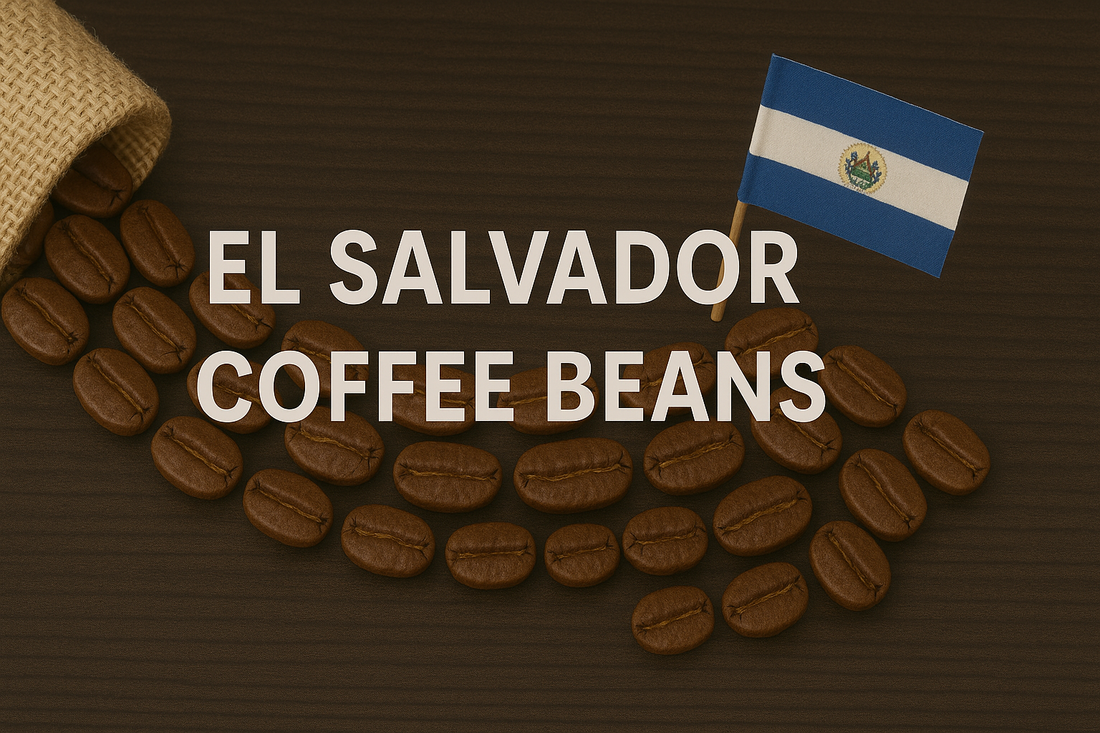
El Salvador Coffee Beans
正啟 GLOBALEYESShare this news
Coffee production in El Salvador began in the 18th century primarily for domestic consumption, with exports officially starting in the 19th century. By the early 1930s, coffee had become El Salvador’s leading economic commodity, accounting for nearly 50% of the nation's total exports. The high quality of Salvadoran coffee played a significant role in its rapid growth.

In 1979, the onset of El Salvador’s civil war—lasting for 13 years—severely damaged the coffee industry, causing many farms to disappear entirely. Following the war, agricultural reforms restricted coffee farming to certain regions, further limiting growth. Despite these challenges, small-scale coffee farmers continued production, introducing advanced technologies and innovative farming methods, successfully creating coffees with uniquely Salvadoran characteristics.

By 2018, El Salvador’s coffee industry had finally regained its past glory, with coffee exports once again representing over 60% of the country's total exports, placing El Salvador among the world’s top 20 coffee-producing countries. Today, approximately 20,000 coffee farmers and over 100,000 workers are employed in coffee-related sectors in El Salvador.

Coffee Growing Regions
El Salvador’s coffee-growing regions are distributed across six distinct areas: Apaneca-Ilamatepec, Quetzaltepec-Balsamo, Chichontepec, Tecapa-Chinameca, Cacahuatique, and Alotepec-Metapan.

Apaneca-Ilamatepec
The Apaneca-Ilamatepec mountain range includes the provinces of Santa Ana, Sonsonate, and Ahuachapán, located in western El Salvador. Approximately 50% of the nation's coffee-growing area lies within this region. The main varieties cultivated here are Bourbon, Pacas, and Pacamara.

Quetzaltepec-Balsamo
Altitude: 500 – 1,900 meters
This range includes municipalities within La Libertad, San Salvador, and Sonsonate, centrally located within the country.

Chichontepec
Covering the provinces of La Paz, San Vicente, and Cuscatlán in central El Salvador, this region constitutes about 5% of the nation’s coffee farmland. It primarily produces Bourbon, Pacas, Pacamara, Catuaí, and Cuscatleco varieties.

Tecapa-Chinameca
Situated in eastern El Salvador, encompassing the provinces of Usulután and San Miguel, this region accounts for roughly 12% of the coffee-growing area. Bourbon, Pacas, and Pacamara are the dominant varieties grown here.

Cacahuatique
Located in eastern El Salvador, within San Miguel and Morazán provinces, this region makes up approximately 4% of the country’s total coffee-growing area.

Alotepec-Metapan
The Alotepec-Metapan mountain range, located in the northwest, spans across Santa Ana and Chalatenango provinces. The three most popular coffee varieties cultivated here are Pacas, Bourbon, and Pacamara, with the majority of production carried out by small-scale farmers.

Coffee Classification
El Salvador classifies coffee beans based purely on cultivation altitude, independent of quality or traceability, into three main categories:
- Strictly High Grown (SHG): Cultivated above 1,200 meters.
- High Grown (HG): Cultivated between 900 – 1,200 meters.
- Central Standard: Cultivated above 600 meters.

Coffee Varieties
Nearly all coffee grown in El Salvador belongs to the Arabica species. The most commonly found varieties include:
Bourbon
El Salvador’s Bourbon coffee typically exhibits notes of chocolate and creamy undertones. Due to its relatively low yield, Bourbon coffee often commands higher prices compared to other varieties.
Pacamara
Developed by the Salvadoran Coffee Research Institute as a crossbreed, Pacamara beans are notably large, boasting exceptional flavor profiles.
Pacas
Pacas is a natural mutation of the Bourbon variety, serving as the direct parent variety of Pacamara.
Caturra
A natural mutation of Bourbon, Caturra is a high-yielding, dwarf coffee variety, making it easier to cultivate and harvest.
Catuai
Developed from a crossbreed of yellow Caturra and Mundo Novo, Catuai is known for its high productivity and resistance to pests.

Coffee Flavor Profile
El Salvador’s diverse geography, featuring abundant high-altitude volcanic regions, rich mineral soils, unique microclimates, and natural shade, contributes significantly to the exceptional quality of its coffee.

Because most coffee farms are situated at high elevations, coffee cherries have extended maturation periods, enabling them to develop deeper flavors and increased sweetness. Salvadoran coffees typically feature nutty, chocolatey, and caramel-like characteristics. When lightly roasted, they offer bright citrus and fruity notes, accompanied by a creamy texture. Darker roasts yield a smooth, full-bodied mouthfeel with intense, sweet aromatics. Salvadoran coffees are highly recommended for their distinctive, enjoyable taste experiences.

